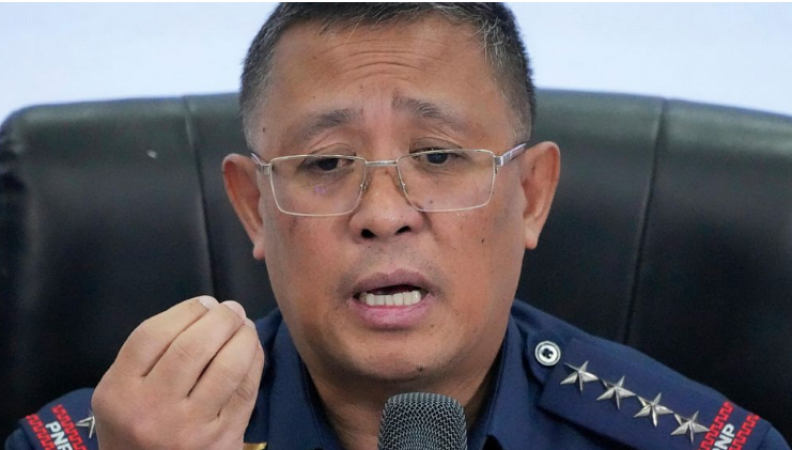
MANILA: After some enforcers were detained as a result of using illegal drugs, further damaging the police force's notorious reputation, the Philippine national police chief announced on Thursday that he had arrested nearly a thousand other high-ranking Offered to quit to motivate police officers. to do the same
After law enforcement on the front lines of the drug war learned drugs were being traded, Interior Secretary Benjamin Abalos Jr made a stern call on Wednesday for all police generals and colonels to submit their "courtesy resignations."
According to Police General Rodolfo Azurín Jr., those who submit "courtesy resignations"—voluntarily offering to leave the force—will remain in office until President Ferdinand Marcos Jr. accepts their resignation after an investigation. Do not decide. Fears that a significant loss of leaders would incapacitate the 227,000-man force were allayed by Azurín.
Also Read: On Independence Day the head of Myanmar's army promotes its election strategy
He also defended the police hierarchy, claiming that only 10 out of over 100 generals were being investigated for alleged involvement with illegal drugs at the time. He expressed regret at the fact that a small number of deportees, including hundreds of full colonels, were tarnishing the reputation and careers of most decent officers.
In a news conference broadcast nationwide, Azurin said, "Our organization is on trial here."
Because a police commission and an internal police disciplinary office have been assisting in the prosecution of those accused of crimes and corruption, along with illegally killing drug suspects in connection with the government's anti-drug campaign. Is. Abalos' resignation has raised questions and concerns for the top cop.
Others claimed the action could undermine confidence in police officers who do their jobs well.
Azurin said, "While this process may be outside the disciplinary machinery of the Philippine National Police, it will be done because of the urgency of the situation.
He requested impartiality and objectivity from the five-person committee that will be set up to investigate any links between police generals and colonels and the illegal drug trade.
Also Read: What has Charlie Hebdo, who published Prophet's cartoon, done now? Iran got provoked
In October, a police sergeant was detained for aiding in drug trafficking and the concealment of nearly a ton of methamphetamine, a powerful and illegal stimulant, in Manila. This arrest damaged the reputation of the National Police Force. A sinister drug deal in his office in December was covered up by a regional director of the country's top anti-narcotics organization and his men.
The shocking arrests raised concerns about the police force, which was employed by former President Rodrigo Duterte to carry out a brutal crackdown on his drug lords that resulted in the deaths of more than 6,200 suspects, mostly poor.
Even though Duterte had previously referred to the police as "rotten to the core", he used law enforcement across the country to drive his aggressive anti-drug campaign. In 2017, amid growing criticism over rogue anti-narcotics officers accused of strangling a South Korean businessman to death at the main police camp in the capital region, he ordered police to cease all anti-drug operations. Afterwards, he consents to the police conducting more drug raids.
According to Human Rights Watch, calls for the resignation of top police officers could harm the government's anti-drug campaign.
According to Carlos Conde of Human Rights Watch, "It is a cynical ploy that allows abusers to escape accountability, especially because Abalos has used criminal justice and the flaws of the judicial system to try to justify his view." called upon.
Marcos Jr. announced that he would continue his father's anti-drug campaign, but in a different way, emphasizing the rehabilitation of drug users and refraining from using excessive force.
Asked whether Duterte went too far with his deadly drug crackdown, Marcos shifted his criticism to law enforcement in a September interview with The Associated Press in New York.
"His people sometimes went too far," Marcos previously told the AP. We've seen too many instances where police officers, other operatives, and some of them were just suspects.
Also Read: Pakistan has become 'Kaal' for its terrorists, Taliban threatened openly
Marcos has not acted as harshly as he charged against his predecessors for widespread drug-related killings. He aligned with Duterte's favorite daughter Sarah Duterte, who is currently the vice president, and is credited with helping him win the presidency in last year's elections.